Your car has been reliable for many years, but now, you hear a knocking sound coming from the engine. What does this noise mean? Is it time for a new car? Or is it a problem that you can easily fix?
Unfortunately, when you’re dealing with an engine knock, the outlook is usually pretty grim. But there are some instances where you might get lucky and not have to choose between buying either a new engine or a new car.

What Does an Engine Knock Sound Like?
An engine knock sounds like someone knocking on the front door. But since the noise, which is deep and metallic in nature, is coming from the engine, you’ll know it’s not your neighbor stopping by for a friendly visit.

You may notice that the noise becomes more frequent when engine speed is increased, especially if the sound is due to a failed bearing.
What Does a Knocking Noise in the Engine Mean?
A knocking sound from your car’s engine is never a good sign. In fact, it almost always means you have a serious (and costly) problem on your hands.
Here are the most common causes of engine knocking sounds:
Low Engine Oil
A low oil level can cause engine knocking. If you get lucky, the noise may subside when you refill the engine with oil. In most cases, however, once the oil level gets low enough to create knocking, damage to internal engine components has already taken place.
Engine Bearing Failure
Engine rod bearing and main bearing failure usually occurs due to a lack of lubrication (caused by a low oil level or infrequent vehicle maintenance). When the bearings fail, they create an excessive amount of clearance between the internal engine components, leading to a knocking noise.

Excessive Crankshaft End-Play
Although not as common as the problems listed above, excessive crankshaft end-play can also cause a knocking noise.
Crankshaft end-play is a measurement that indicates how much the crankshaft can be moved back and forth in the engine block. End-play becomes excessive when there’s too much clearance between the crankshaft and thrust bearings.
Torque Converter and Flexplate Issues
The torque converter attaches to the flexplate at the back of the engine. Loose or missing converter mounting bolts can lead to a knocking noise when the engine is running.
How to Fix Engine Knocking
When dealing with engine knocking sounds, you’ll want to check the oil level first. If you’re fortunate, refilling the engine with fresh oil may cause the noise to subside (at least temporarily).
The bad news is, even if the noise does go away, there’s a good chance internal engine components have already suffered permanent damage due to lack of lubrication.
Some people attempt to stop the knocking by putting additives in the engine oil—but those additives almost never work (and if they do, it’s a temporary Band-Aid solution). Don’t bother wasting your money.
If the oil is full and the engine is knocking, there’s only one way to fix the problem—and that’s to repair the car properly.
Other Similar Engine Noises
Noise is subjective. What might sound like knocking to one person will sound like rattling to another. That’s why we’re going to discuss some engine noises—including rattling, tapping, and ticking—that are often mistaken for knocking.
Engine Rattling
A rattling noise from the engine sounds like someone tapping on metal (some might say it sounds like a baby rattle).
Do you hear that type of sound coming from your engine? Here are some potential causes:

Low Engine Oil
A low oil level can cause hydraulic timing chain tensioners to recess or collapse, leading to a rattling noise. The variable valve timing actuators may also make noise when the engine oil level is low.
Loose Timing Chain
If you hear rattling from the front of the engine, you could be dealing with a loose timing chain. The chain may be loose because it’s stretched or because a guide or tensioner has failed. In some cases, the chain will end up hitting the timing cover, resulting in a loud clattering noise.
Faulty Variable Valve Timing Actuator (Phaser)
A faulty variable valve timing actuator (phaser) can also cause a rattling noise from the front of the engine. Many modern vehicles are equipped with variable valve timing (VVT), and the actuator is the focal point of that system.
When the actuator fails, it may move back and forth uncontrollably, creating a rattling noise.
Loose Heat Shield
One far less costly issue is a loose heat shield. Over time, the heat shields that cover the exhaust can become loose due to broken or missing retaining fasteners. When that happens, the loose shield will be free to rattle against the exhaust and other components.
Engine Tapping or Engine Ticking
Another unnerving sound you might hear coming from your engine is tapping or ticking. Some say the noise sounds like an amped-up version of the clicking of a ballpoint pen.
Common causes for this sound include:
Low Engine Oil
Once again, low engine oil makes the list. A low oil level can prevent the valvetrain components from getting proper lubrication, resulting in a tapping or ticking noise coming from the engine.
Worn Valvetrain Components
Worn or damaged valvetrain components, such as rocker arms, lifters, and camshafts, can result in a noticeable tapping or ticking noise from the engine.
Piston or Wrist Pin Issues
If you hear a metallic tapping noise, the issue could be excessive piston-to-wall clearance (also known as piston slap) or a worn piston wrist pin. Minor piston slap may go away once the engine is warmed up.
An exhaust leak
A tapping or ticking noise doesn’t always point to an internal engine problem. The issue could also be an exhaust leak from the exhaust manifold, downpipe, etc.
Can I Drive on a Knocking Engine?

Your car may move under its own power with a knocking engine—at least for a short distance. But the longer you drive with the problem, the more extensive the damage to your engine will be.
For example, if your engine is knocking due to a low oil level, continuing to drive will almost certainly cause significant internal engine problems. The engine may even seize completely.
It’s also a bad idea to continue driving with a rattling, tapping, or ticking noise coming from the engine. Any of these sounds could point to a serious problem that will only get worse if you continue to operate the vehicle.
So, if your engine is knocking—or making weird noises of any kind—don’t drive the vehicle until you fix the problem.
Where to Get Quality Parts to Fix Engine Knocking
Because there are many possible reasons for the engine knocking sound in your vehicle, it’s best to have it examined and serviced by a trusted mechanic. The knocking might progress into worse engine issues if left unresolved, which can lead to even more costly repairs. If your mechanic instructs you to purchase new parts, you can likely find what you need on CarParts.com.
The CarParts.com catalog has a wide variety of parts for sale at different price points to suit your budget. We source our stock from different trusted aftermarket manufacturers, and we’re willing to offer a 60-day return policy to put your mind at ease about ordering online. Our easy-to-navigate website makes ordering from the comfort of your own home a breeze. With a few easy clicks, you can securely and conveniently checkout your items, and we’ll have them delivered to your door in as fast as two business days.
Order motor oil together with the parts you need to fix your car’s knocking engine at CarParts.com today.
Products Mentioned in this Guide
Any information provided on this Website is for informational purposes only and is not intended to replace consultation with a professional mechanic. The accuracy and timeliness of the information may change from the time of publication.


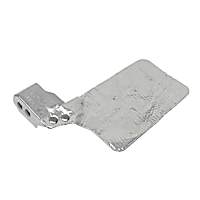 Heat Shield
Heat Shield
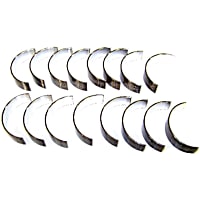 Rod Bearing
Rod Bearing
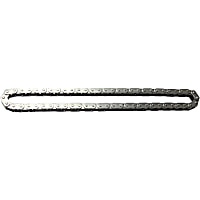 Timing Chain
Timing Chain
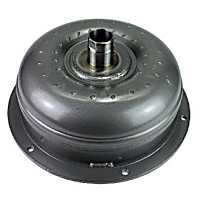 Torque Converter
Torque Converter
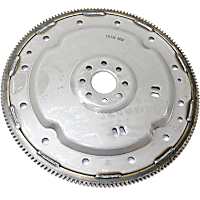 Flex Plate
Flex Plate





























